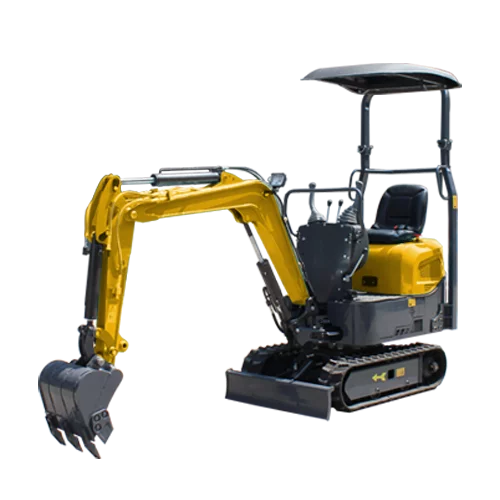Welcome to My Blog!
Before we dive into the content, I’d love for you to join me on my social media platforms where I share more insights, engage with the community, and post updates. Here’s how you can connect with me:
Facebook:https://www.facebook.com/profile.php?id=100087112105480
LinkedIn:https://www.linkedin.com/showcase/99327366/admin/dashboard/
Now, let’s get started on our journey together. I hope you find the content here insightful, engaging, and valuable.
Introduction

Landscaping is more than just planting flowers and trimming hedges; it involves a range of tasks from excavation and grading to moving materials and creating features. For these tasks, a small garden excavator can be a game-changer. Compact yet powerful, a small garden excavator is designed to handle various landscaping projects with ease and precision. In this blog, we will delve into how a small garden excavator transforms landscaping projects, examining its features, benefits, applications, and real-world impact.
What is a Small Garden Excavator?
Definition and Key Features
A small garden excavator is a compact, versatile machine designed specifically for landscaping and small-scale excavation tasks. It combines the power of larger excavators with the agility required for tight spaces. Key features of a small garden excavator include:
- Compact Size: Allows operation in narrow or confined spaces.
- Hydraulic System: Provides strong digging and lifting capabilities.
- Adjustable Controls: Facilitates precise movements and adjustments.
- Versatile Attachments: Compatible with various tools for different tasks.
Table 1: Key Features of a Small Garden Excavator
| Feature | Description |
|---|---|
| Compact Size | Suitable for tight and confined spaces |
| Hydraulic System | Offers powerful digging and lifting capabilities |
| Adjustable Controls | Enables precise control and adjustments |
| Versatile Attachments | Supports various tools and attachments |
Benefits of Using a Small Garden Excavator
Enhanced Efficiency
A small garden excavator enhances efficiency in landscaping projects by speeding up tasks that would otherwise be labor-intensive. Its compact design allows it to navigate tight spaces and complete tasks quickly, reducing the time required for excavation and material handling.
Precision and Control
The precision and control offered by a garden excavator are crucial for detailed landscaping work. Operators can make precise adjustments to the digging depth, angle, and positioning, which is essential for tasks like grading, trenching, and creating detailed features.
Cost-Effectiveness
Compared to larger excavators, garden excavators are more affordable both in terms of initial investment and operational costs. Their fuel efficiency and lower maintenance requirements make them a cost-effective choice for homeowners and small landscaping businesses.
Versatility in Tasks
Small garden excavators are highly versatile, capable of performing a range of tasks from digging and trenching to moving materials and landscaping. This versatility allows for a single machine to handle multiple aspects of a landscaping project, simplifying operations and reducing the need for additional equipment.
Accessibility
The compact size of a small garden excavator allows it to access areas that larger machines cannot reach. This is particularly useful for residential landscaping projects where space is limited, such as in small yards, gardens, and urban environments.
Table 2: Benefits of Using a Small Garden Excavator
| Benefit | Description |
|---|---|
| Enhanced Efficiency | Speeds up tasks, saving time and effort |
| Precision and Control | Provides accurate adjustments and movements |
| Cost-Effectiveness | Lower initial and operational costs |
| Versatility in Tasks | Handles multiple tasks with various attachments |
| Accessibility | Reaches tight and confined spaces |
Applications of a Small Garden Excavator
Residential Landscaping
For homeowners, a small garden excavator is an invaluable tool for residential landscaping projects. It can be used for tasks such as digging for garden beds, creating ponds, and installing drainage systems. Its ability to operate in small spaces makes it ideal for urban and suburban settings.
Garden Renovations
When renovating a garden, a garden excavator can simplify tasks like removing old plants, reshaping soil, and preparing areas for new landscaping features. Its precision allows for detailed work, ensuring that the garden renovation meets the desired design specifications.
Pathway and Patio Construction
Creating pathways and patios requires careful excavation and grading. A garden excavator can handle the digging and leveling needed for these projects, ensuring a stable foundation for paving stones or tiles. Its versatility also allows for the use of attachments such as compactors and trenchers.
Utility Work
Small garden excavators are also useful for utility work, including installing irrigation systems, electrical lines, and drainage pipes. Their compact size allows them to operate in tight spaces, making them suitable for various utility installations.
Table 3: Applications of a Small Garden Excavator
| Application | Description |
|---|---|
| Residential Landscaping | Ideal for garden beds, ponds, and drainage systems |
| Garden Renovations | Simplifies soil removal and reshaping |
| Pathway and Patio Construction | Handles digging and grading for stable foundations |
| Utility Work | Suitable for installing irrigation, electrical, and drainage systems |
Case Studies: Real-World Impact
Urban Garden Transformation
In an urban setting, a garden excavator was used to transform a small, neglected backyard into a functional garden space. The machine’s compact size allowed it to navigate the tight area, facilitating the removal of old soil and the creation of new garden beds. The project was completed efficiently, resulting in a vibrant and well-designed outdoor space.
Residential Pathway Installation
A small garden excavator was employed to install a new pathway in a suburban garden. The machine’s precise control enabled accurate excavation and grading for the pathway, ensuring a smooth and level surface for paving stones. The project was finished on time and within budget, enhancing the garden’s accessibility and aesthetic appeal.
Challenges and Considerations
Limited Power and Capacity
While small garden excavators are versatile, they have limitations in terms of power and capacity compared to larger machines. For heavy-duty tasks or large-scale projects, additional equipment may be necessary.
Operator Training
Proper training is essential for operating a garden excavator effectively and safely. Operators must be familiar with the machine’s controls, safety features, and maintenance requirements to ensure optimal performance and prevent accidents.
Maintenance and Care
Regular maintenance is crucial for the longevity and efficiency of a garden excavator. This includes routine inspections, servicing of hydraulic systems, and addressing any mechanical issues promptly to avoid downtime.
The Future of Small Garden Excavators

Technological Advancements
The future of small garden excavators is likely to include advancements in technology, such as improved automation, enhanced control systems, and integration with smart technology. These innovations will further increase efficiency and precision in landscaping tasks.
Eco-Friendly Innovations
As sustainability becomes a priority, future small garden excavators may incorporate eco-friendly technologies, such as electric or hybrid power systems. These advancements will reduce the environmental impact of landscaping operations and contribute to greener practices.
Increased Versatility
The development of new attachments and accessories will enhance the versatility of garden excavators, allowing them to handle an even broader range of tasks. This will make them even more valuable tools for landscaping and construction projects.
Conclusion
A small garden excavator is a transformative tool for landscaping projects, offering efficiency, precision, and versatility in a compact package. Whether for residential landscaping, garden renovations, or utility work, its ability to operate in tight spaces and handle various tasks makes it an invaluable asset. Despite some challenges, such as power limitations and the need for proper training, the benefits of using a small garden excavator are substantial.
As technology continues to advance, the future of garden excavators promises even greater improvements in performance and sustainability. Embracing these innovations will help landscapers and homeowners achieve their project goals with greater ease and efficiency.
FAQ
What is a small garden excavator used for?
A small garden excavator is used for various landscaping and excavation tasks, including digging garden beds, creating ponds, installing pathways, and utility work.
How does a small garden excavator improve landscaping projects?
It improves efficiency by speeding up tasks, provides precision and control for detailed work, and offers versatility for handling multiple aspects of a project.
Are small garden excavators cost-effective?
Yes, they are generally more affordable than larger excavators in terms of both initial purchase price and ongoing operational costs, making them a cost-effective choice for many projects.
What are the limitations of a small garden excavator?
Limitations include lower power and capacity compared to larger machines, which may require additional equipment for heavy-duty tasks.
What advancements can we expect in the future of small garden excavators?
Future advancements may include improved automation, eco-friendly technologies, and increased versatility with new attachments and accessories.
